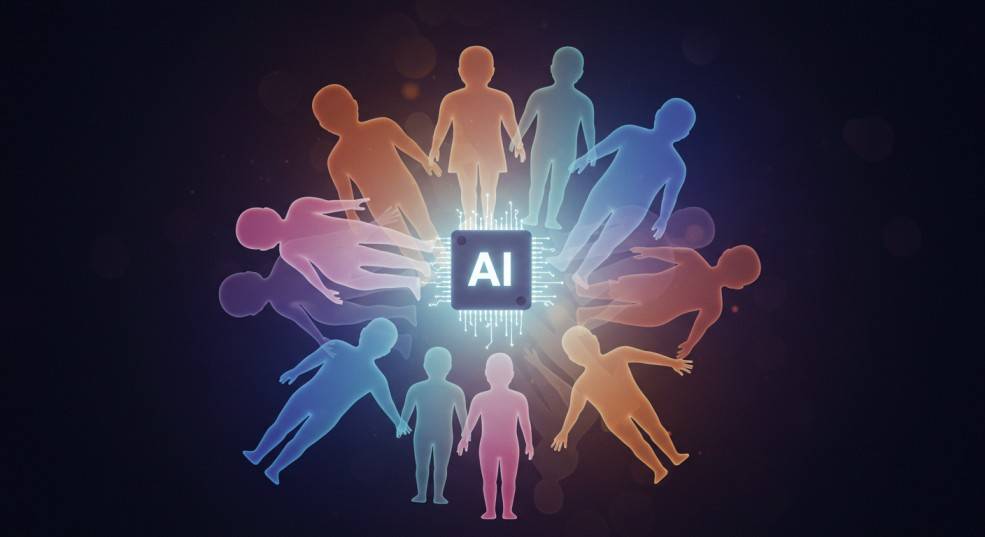
๐ช๐ต๐ ๐๐ ๐๐๐ต๐ถ๐ฐ๐ ๐๐ ๐ฎ ๐ฃ๐๐ฏ๐น๐ถ๐ฐ ๐๐ฒ๐ฎ๐น๐๐ต ๐๐บ๐ฝ๐ฒ๐ฟ๐ฎ๐๐ถ๐๐ฒ: ๐ง๐ถ๐บ๐ฒ ๐๐ผ ๐๐ฐ๐, ๐ก๐ผ๐ ๐๐๐๐ ๐ฅ๐ฒ๐ณ๐น๐ฒ๐ฐ๐
We are no longer entering the AI revolutionโwe are already living it. Yet AI ethics, as both a discipline and a practical guide, is alarmingly late in shaping this transformation. Whether you build AI, regulate it, or unknowingly interact with it daily, you are already affectedโconsciously or not. Mastering AI ethics is no longer optional; it is a shared responsibility that no individual, institution, or profession can afford to ignore.
If traditional bioethics expertise is sparse, imagine the gap in the AI ethics sphere.
๐๐ ๐๐ผ๐ผ๐น๐ ๐ฐ๐ฎ๐ป ๐ฎ๐บ๐ฝ๐น๐ถ๐ณ๐ ๐๐๐๐๐ฒ๐บ๐ถ๐ฐ ๐ถ๐ป๐ฒ๐พ๐๐ถ๐๐ถ๐ฒ๐, ๐ฐ๐ผ๐บ๐ฝ๐ฟ๐ผ๐บ๐ถ๐๐ฒ ๐ฝ๐ฎ๐๐ถ๐ฒ๐ป๐ ๐ฎ๐๐๐ผ๐ป๐ผ๐บ๐, ๐ฎ๐ป๐ฑ ๐ฒ๐ฟ๐ผ๐ฑ๐ฒ ๐๐ฟ๐๐๐ ๐ถ๐ณ ๐ฑ๐ฒ๐ฝ๐น๐ผ๐๐ฒ๐ฑ ๐๐ถ๐๐ต๐ผ๐๐ ๐ฒ๐๐ต๐ถ๐ฐ๐ฎ๐น ๐๐ฎ๐ณ๐ฒ๐ด๐๐ฎ๐ฟ๐ฑ๐.
From data governance to moral reasoning in clinical decisions, we must reimagine AI not just as a tool, but as a force with governance implications. Researchers, policymakers, civil society, and healthcare providers have a shared responsibility to ensure AI serves people, not just progress.
Letโs move beyond hype to holistic health justice grounded in transparency, accountability, and community values.
For Policymakers, Researchers, Civil Society, and Healthcare Providers:
AI is Not Neutral
1. Algorithms encode human biasesโif unaddressed, they exacerbate health inequities, particularly in marginalized populations.
2. Transparency Is Essential
Black-box systems in healthcare undermine informed consent and challenge accountability.
3. Data Governance Matters
Poor data practices can result in privacy violations, consent failures, and exploitation of vulnerable communities.
4. Bias Must Be Audited
Regular audits should assess training data for representativeness and fairness across gender, race, and socio-economic status.
5. Local Contexts Need Centering
Ethics frameworks must be adapted to local sociopolitical realities, especially in low- and middle-income countries (LMICs).
6. Moral Reasoning in AI Decisions
AI systems influencing life-and-death choices must align with human values and moral diversity.
7. Regulation Is Lagging
Clear governance frameworks are needed to keep pace with innovation and prevent harm.
8. Civil Society Engagement Is Critical
Communities must shape the norms that define responsible AIโnot just technocrats or industry leaders.
9. Capacity Strengthening Is Urgent
Frontline healthcare workers and public health leaders must be trained in AI ethics basics.
10. Health Justice Must Guide Innovation
AI should be a tool for reducingโnot deepeningโexisting health disparities.
The time for reactive ethics is over. We must decisively equip institutions, researchers, and communities with the tools to interrogate, challenge, and reshape AI before it reshapes us.





